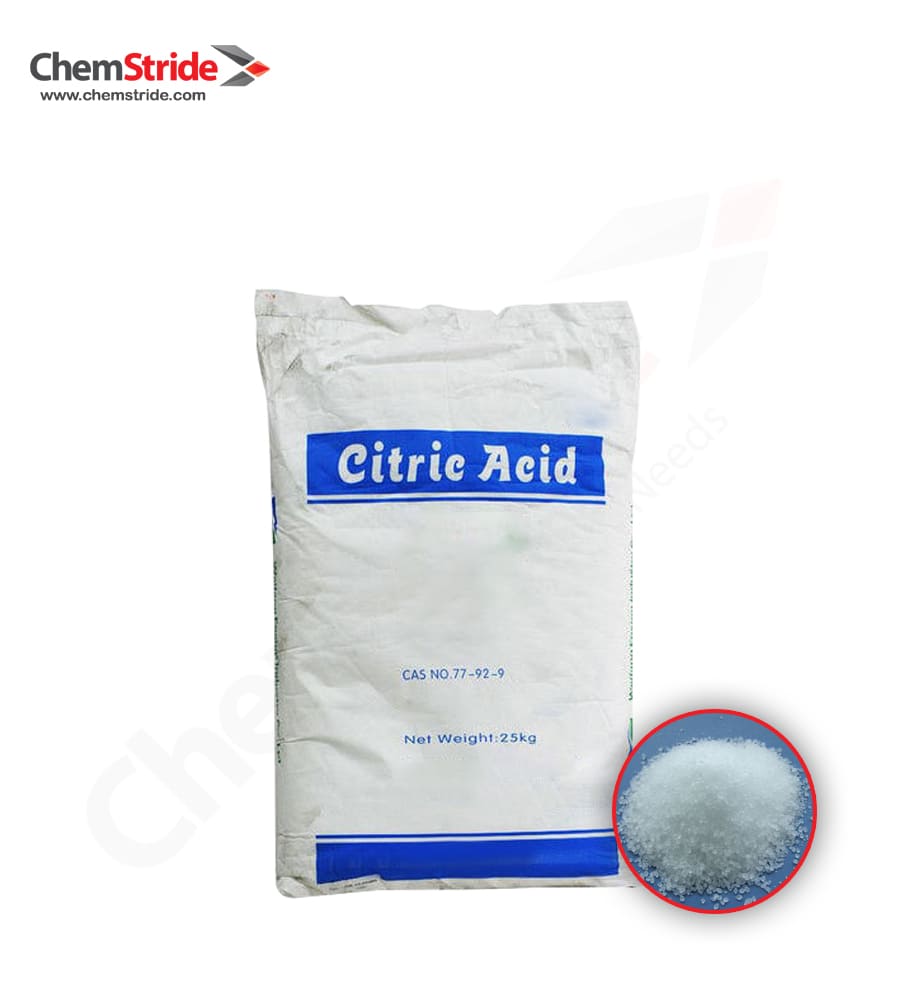
Citric Acid
Citric acid is a weak organic acid that is produced as a white crystalline powder. It is a natural food preservative that is also used to add an acidic, or sour taste to foods and soft drinks. At room temperature, citric acid is a white crystalline powder. It can exist either in an anhydrous (water-free) form or as a monohydrate. The anhydrous form crystallizes from hot water. The monohydrate will form when citric acid is crystallized from cold water.
In chemical structure, citric acid shares the properties of other carboxylic acids. When heated above 175°C, it decomposes through the loss of carbon dioxide and water. Citric acid leaves a white crystalline precipitate.
Enquire Now
Citric acid is a weak organic acid that is produced as a white crystalline powder. It is a natural food preservative that is also used to add an acidic, or sour taste to foods and soft drinks. At room temperature, citric acid is a white crystalline powder. It can exist either in an anhydrous (water-free) form or as a monohydrate. The anhydrous form crystallizes from hot water. The monohydrate will form when citric acid is crystallized from cold water.
In chemical structure, citric acid shares the properties of other carboxylic acids. When heated above 175°C, it decomposes through the loss of carbon dioxide and water. Citric acid leaves a white crystalline precipitate.
1)citric acid is a useful ingredient in beverages, jams, jellies, candies and frozen foods. It is also added in gelatin and fruit-based desserts as well as in canned vegetables and meat products. 2)Citrate salts of various metals are used to deliver those minerals in a biologically available form in many dietary supplements. 3)Citric acid’s ability to chelate metals makes it useful in soaps and laundry detergents. By chelating the metals in hard water, it lets these cleaners produce foam and work more efficiently without the need for water softening.
4)Similarly, citric acid is used to regenerate the ion exchange materials used in water softeners by stripping off the accumulated metal ions as citrate complexes.
5)It is used in the biotechnology and pharmaceutical industry to passivate high purity process piping in substitution for using nitric acid.